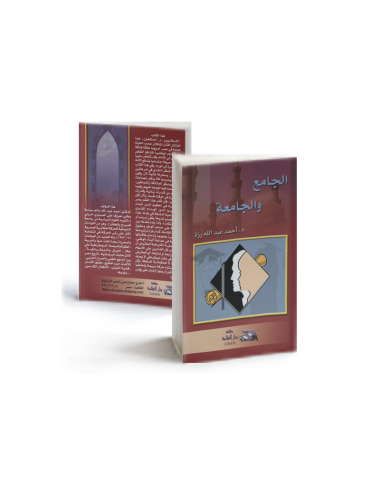- On sale!
- -60%
Book's
James Joyce
By the time James Joyce wrote "The Fengan Awakening" with its broad view of world history, he might have fully felt that quotes like "modern" or "traditional" no longer made sense when applied to his work, but to his old admirers he is above everything else. : Updated like no other.
Concluded Speech
ÙابØÙر بتتÙاØÙÂ
Ù٠دÙÙا اÙعاشÙ
ÙÙ ÙÙ ÙØظة Ø´ÙÙد
ÙÙجÙØ© بÙسابÙ
ÙÙر اÙÙÙا٠عÙÙÙ
ÙÙ٠اÙÙسا٠عاÙÙ
أشر٠Ùاعر
- On sale!
Mosque and University
Islamists and intellectuals, the two categories, which constitute the backbone of public life in Egypt
- On sale!
- -60%
Christian Spirituality Volume 3: Later Developments: From the Renaissance to Jansenism
This volume begins with the Renaissance and ends with Jansenism, covering- from the middle of the fifteenth to the middle of the seventeenth century. It takes in the great schools of spirituality of French Schools.
With the exception of the Salesian School, the others are divided between the great Catholic nations which filled the political stage of Europe during that period : Spain, Italy, and France.
Christian Spirituality Volume 2: in the Middle Ages
This is a reproduction of a book published before 1923. This book may have occasional imperfections such as missing or blurred pages, poor pictures, errant marks, etc. that were either part of the original artifact, or were introduced by the scanning process.
Christian Spirituality Volume 1: From the Time of our Lord till the Dawn of the Middle Ages
This is a reproduction of a book published before 1923. This book may have occasional imperfections such as missing or blurred pages, poor pictures, errant marks, etc. that were either part of the original artifact, or were introduced by the scanning process.
Where to Start and What to Ask : An Assessment Handbook
As a life raft for beginners and their supervisors, Where to Start and What to Ask provides all the necessary tools for garnering information from clients. Lukas also offers a framework for thinking about that information and formulating a thorough assessment. This indispensable book helps therapeutic neophytes organize their approach to the initial phase of treatment and navigate even rough clinical waters with competence and assurance.
Talking with Sartre: Conversations and Debates
John Gerassi had just this opportunity as a child, his mother and father were very close friends with Jean-Paul Sartre and Simone de Beauvoir and the couple became for him like surrogate parents. Authorized by Sartre to write his biography.
Through the interviews with both their informalities and their tensions, Sartre’s greater complexities emerge. In particular we see Sartre wrestling with the apparent contradiction between his views on freedom and the influence of social conditions on our choices and actions. We also gain insight into his perspectives on the Spanish Civil War, World War II, and the disintegration of colonialism.
Kids with the Rank of Workers
This booklet is a collection of a number of the author's contributions on the topic of Working Childhood
- On sale!
- -60%














